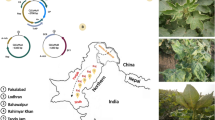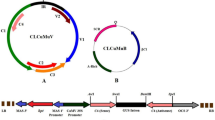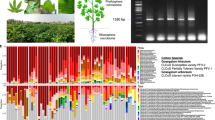Abstract
IN a note on the leaf-curl of cotton,1 Mr. M. A. Husain queries the possibility of Aleurodids being responsible for the transmission of this disease, and points out that Aleurodids do not convey it in the Punjab. Since Mr. Husain's note was written, Mr. Kirkpatrick 2 has definitely proved that the Aleuro-did, Bemisia gossypiperda of Misra and Lamba, is the vector of leaf-curl of cotton, and recent investigations in Dehra Dun on a virus disease of garden zinnias suggest that it is identical with the leaf-curl of cotton and is transmitted by the same vector. Detailed results will shortly be published. Meanwhile it would seem that the presence of leaf-curl of cotton and its Aleurodid vector in India should be suggestive to those interested in the cotton industry of the country.
This is a preview of subscription content, access via your institution
Access options
Subscribe to this journal
Receive 51 print issues and online access
$199.00 per year
only $3.90 per issue
Buy this article
- Purchase on SpringerLink
- Instant access to full article PDF
Prices may be subject to local taxes which are calculated during checkout
Similar content being viewed by others
References
NATURE, 126, 958; Dec. 20, 1930.
Bull. Ent. Res., 22, pp. 323–363; 1931.
Author information
Authors and Affiliations
Rights and permissions
About this article
Cite this article
MATHUR, R. Leaf-Curl of Cotton in Garden Zinnias in North India. Nature 129, 797 (1932). https://doi.org/10.1038/129797b0
Issue date:
DOI: https://doi.org/10.1038/129797b0
This article is cited by
-
Leaf-Curl in Cotton and Other Plants
Nature (1932)



